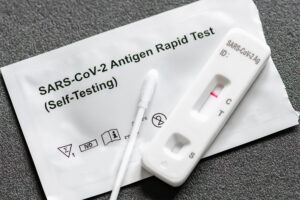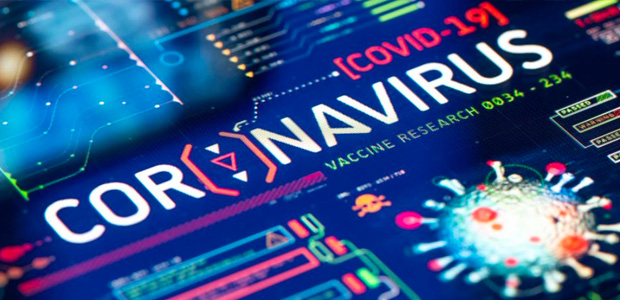 COVID-19 has brought the world to a standstill, and the demand for effective testing has skyrocketed.
COVID-19 has brought the world to a standstill, and the demand for effective testing has skyrocketed.
In this blog post, we will discuss COVID-19 test kit reimbursement and the different types of kits available. It depends on the country and healthcare system, but generally COVID-19 test kits are reimbursed if they are performed in a medical facility or prescribed by a doctor. In the US, for example, many COVID-19 tests are covered by health insurance under the CARES Act. This includes both diagnostic tests to determine if a person is currently infected with the virus and antibody tests to determine if a person was previously infected.
In some cases, the out-of-pocket cost for the test may be waived, meaning the individual will not have to pay anything. If you have health insurance, it’s best to check with your insurance provider to see what is covered and what your cost-sharing responsibilities may be.
However, there may be copays or deductibles, and the exact reimbursement amount can vary depending on the type of test and the individual’s insurance plan. It’s best to check with your healthcare provider and insurance company to find out the specifics of coverage for COVID-19 testing in your area.
COVID-19 Test Kits
How COVID-19 Test Kits Work
The process of taking a COVID-19 test varies depending on the type of test, but in general, the process is relatively simple and non-invasive. For example, the RT-PCR test involves taking a nasal or throat swab, while the antigen test involves a nasal swab or saliva sample. The sample is then sent to a laboratory for analysis.
Importance of Getting Tested for COVID-19
Getting tested for COVID-19 is crucial in controlling the spread of the virus. By identifying positive cases, health authorities can implement measures to prevent further transmission. Testing also helps individuals understand their COVID-19 status and take the necessary precautions, such as self-isolation and seeking medical attention if needed.
Availability of COVID-19 Test Kits
COVID-19 test kits are widely available in many countries, but availability and accessibility may vary depending on the region. Some countries offer free testing, while others may require payment or insurance coverage. In some areas, COVID-19 tests are readily available at local clinics or drive-thru testing sites, while in others, tests may need to be ordered in advance.
Types of COVID-19 Test Kits

There are several types of COVID-19 test kits available, each with its own advantages and disadvantages. The most commonly used test kits are:
- RT-PCR (Reverse Transcriptase Polymerase Chain Reaction) Test: This test is considered the gold standard for detecting the presence of the SARS-CoV-2 virus that causes COVID-19. It detects the genetic material of the virus in a patient’s sample and is highly accurate.
- Antigen Test: This test detects proteins on the surface of the virus and provides results in a matter of minutes. It is less expensive than RT-PCR, but less sensitive and may not detect the virus in its early stages.
- Antibody Test: This test detects antibodies in the blood that are produced in response to the virus. It is used to determine if a person has been infected with COVID-19 in the past, but it is not effective in detecting current infections.
Advantages and Disadvantages of COVID-19 Test Kits
The different types of COVID-19 test kits have their own advantages and disadvantages, and it is important to understand these before deciding which test to use.
- RT-PCR: This test is highly accurate but can take several hours to produce results. It is also more expensive than other test kits and requires specialized equipment.
- Antigen: This test is fast and inexpensive, but it is less sensitive than RT-PCR and may not detect the virus in its early stages.
- Antibody: This test is effective in determining if a person has been infected with COVID-19 in the past, but it is not effective in detecting current infections.
Reimbursement for Businesses
A company can get reimbursed for COVID-19 test kits by submitting claims to the insurance providers (of its employees). The exact process for reimbursement may vary depending on the insurance provider and the specific plan. Generally, the company will need to provide documentation, such as invoices for the test kits and proof of payment, to support the claim. It’s important to check with the insurance provider beforehand to understand the requirements and any exclusions that may apply.
In the United States, many private insurance plans are required to cover COVID-19 testing without cost-sharing, such as copays or deductibles, as a result of the Coronavirus Aid, Relief, and Economic Security (CARES) Act. Additionally, the Families First Coronavirus Response Act requires certain employers to provide paid leave for employees who need to take time off related to COVID-19, including for testing and recovery.
It’s also worth noting that some governments have established programs to provide reimbursement for COVID-19 testing for businesses, so it may be helpful for companies to check if any such programs are available in their jurisdiction.
Conclusion
The COVID-19 pandemic has changed the world as we know it, and one of the most critical tools in fighting the spread of the virus is the COVID-19 test kit. COVID-19 test kits play a crucial role in controlling the spread of the virus and protecting public health. The different types of test kits have their own advantages and disadvantages, and it is important to choose the right test for your needs. With proper testing, we can slow the spread of the virus and protect ourselves and those around us. It’s important for individuals to understand their COVID-19 status and take the necessary precautions, and for health authorities to continue expanding access to testing to ensure effective management of the pandemic.
The COVID-19 pandemic has had a profound and widespread impact on the United States. As the impact of the COVID-19 pandemic continues to evolve, it remains to be seen what long-term effects it will have on the country.
Contact Medwave to discuss how we can assist your COVID-19 testing lab or test kit manufacturing with qualified billing.

